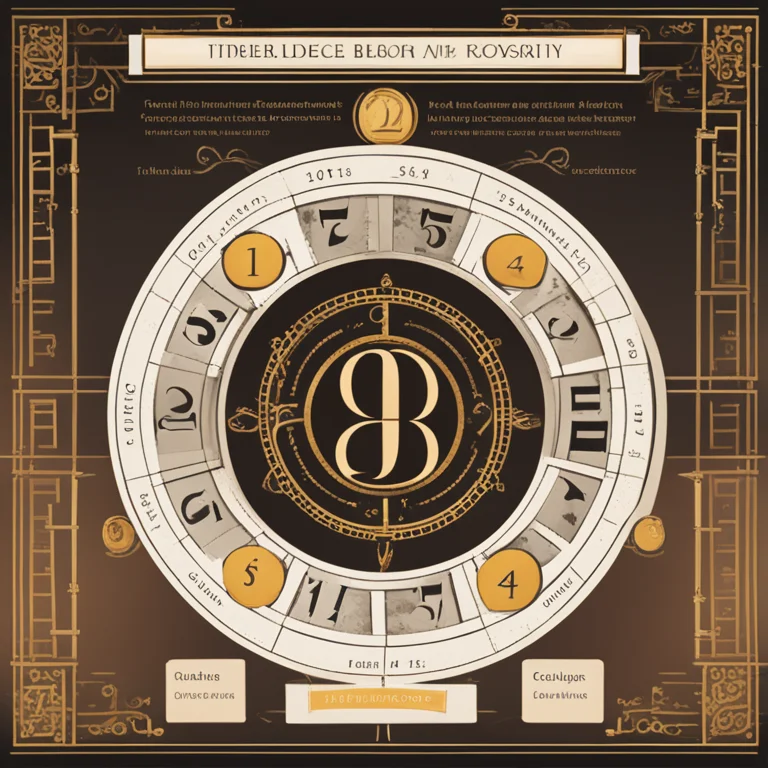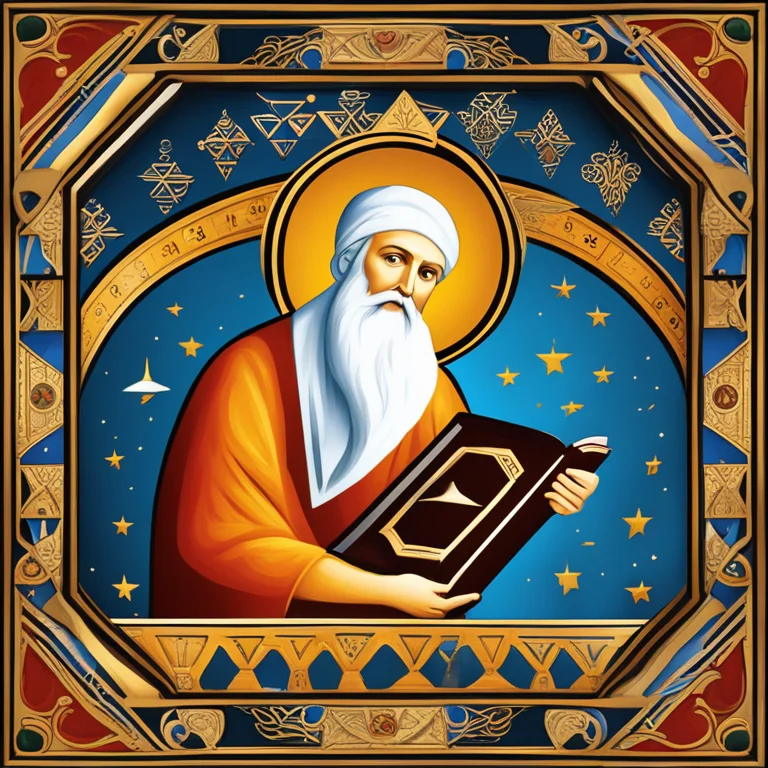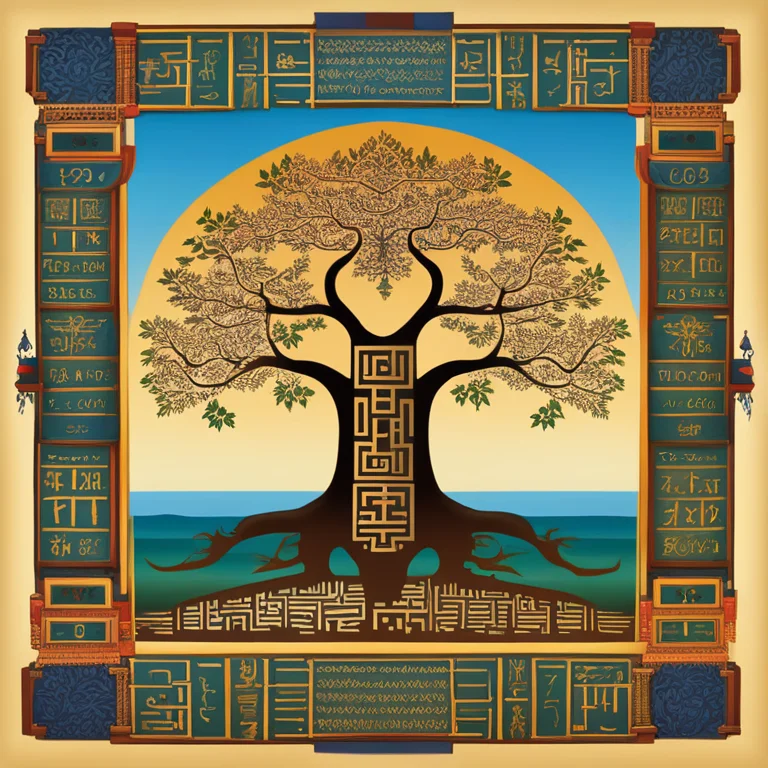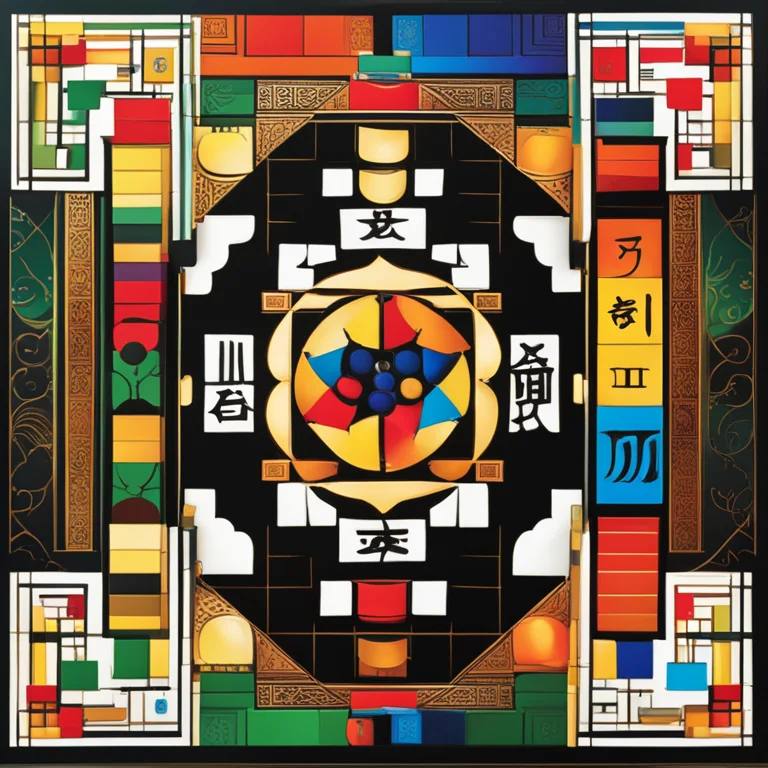
The Origins of Numerology: Tracing Its Inventor
Delve into the mysterious roots of numerology and discover the thinkers who shaped this ancient practice used to understand the cosmos and our place within it.
article by Sofia Ferguson
The Ancient Roots of Numerology
Numerology's invention cannot be credited to a single individual or culture. As an esoteric system that correlates numbers with events, characteristics, and future outcomes, it has a vast and multi-threaded history. Its earliest forms can be traced back to the Babylonians and Egyptians, where numbers held both mathematical and mystical significance. Similarly, the ancient Chinese divination text, the I Ching, relies heavily on numerical patterns and has influenced countless scholars throughout history. Greek philosophers like Pythagoras further developed these concepts, finding divine relations in the numerical ratios of music and the stars.

Pythagoras: The Father of Western Numerology
While not the inventor of numerology, Pythagoras is often referred to as the father of Western numerology. His belief that "all is number" laid down the foundational philosophy that the universe could be explained through the harmony of numbers. Pythagoreans, his followers, dedicated themselves to studying the properties of numbers and the cosmos. Their schools resembled a blend of scientific research and spiritual quest, with numerology at the heart of understanding the universe's true nature.

Numerology Across Cultures
Various cultures have contributed to the tapestry of numerology. Chinese culture views certain numbers as auspicious or inauspicious, with the 'Book of Changes' providing guidance on life based on hexagram numbers. The mystical Jewish tradition of Kabbalah uses the alphanumeric code Gematria to derive meaning from the Torah's texts. Even in Islamic culture, the science of numbers, Ilm Al-Huroof, is used to interpret the Quran. These rich traditions showcase the widespread adoption and adaptation of numerological principles.

Modern Numerology and Its Continued Evolution
In modern times, numerology has seen a revitalized interest. The 20th century brought new figures, such as L. Dow Balliett and Dr. Julian Stenton, who helped popularize numerology by publishing books and teaching the mystical importance of numbers. They shifted the focus of numerology from a predominantly scholarly pursuit to an accessible practice for personal growth and introspection. With the advent of the internet and digital books, numerology has become more accessible, leading to a further evolution of the practice that continues to intertwine with other esoteric arts.

Demystifying Numerology's Complex Origins
Although numerology has been shaped by many thinkers and cultures over thousands of years, to name a sole inventor would overlook its complex origins. It is an art form that has been built collaboratively, each culture adding layers of meaning and interpretation. Numerology's beauty lies in its universality, its ability to merge mathematical precision with spiritual search, offering those who practice it a unique lens to view the fabric of reality.
Embracing Numerology in the Modern World
The practice of numerology today is at a fascinating intersection of heritage and innovation. Enthusiasts integrate ancient techniques with contemporary psychological insights, offering personalized numerology reports and future forecasts. As we look ahead, numerology's adaptability suggests that it will continue to be shaped by new generations, instilling ancient wisdom into our modern, fast-paced lives.
Published: 1/11/2024
Modified: 1/11/2024
More predictions
Come back here soon to learn more about yourself and your future


Scorpio & Aquarius Love Connection
Dive into the dynamic of a Scorpio and Aquarius partnership with our in-depth compatibility analysis for the modern mystic.


Virgo & Libra Love Compatibility
Delve into the harmonious blend of Virgo's analytical nature with Libra's balanced approach to love and life. Discover their compatibility.


Between Virgo's & Libra's Compatibility
Discover the dynamic relationship between Virgo and Libra in love, friendship, and work.